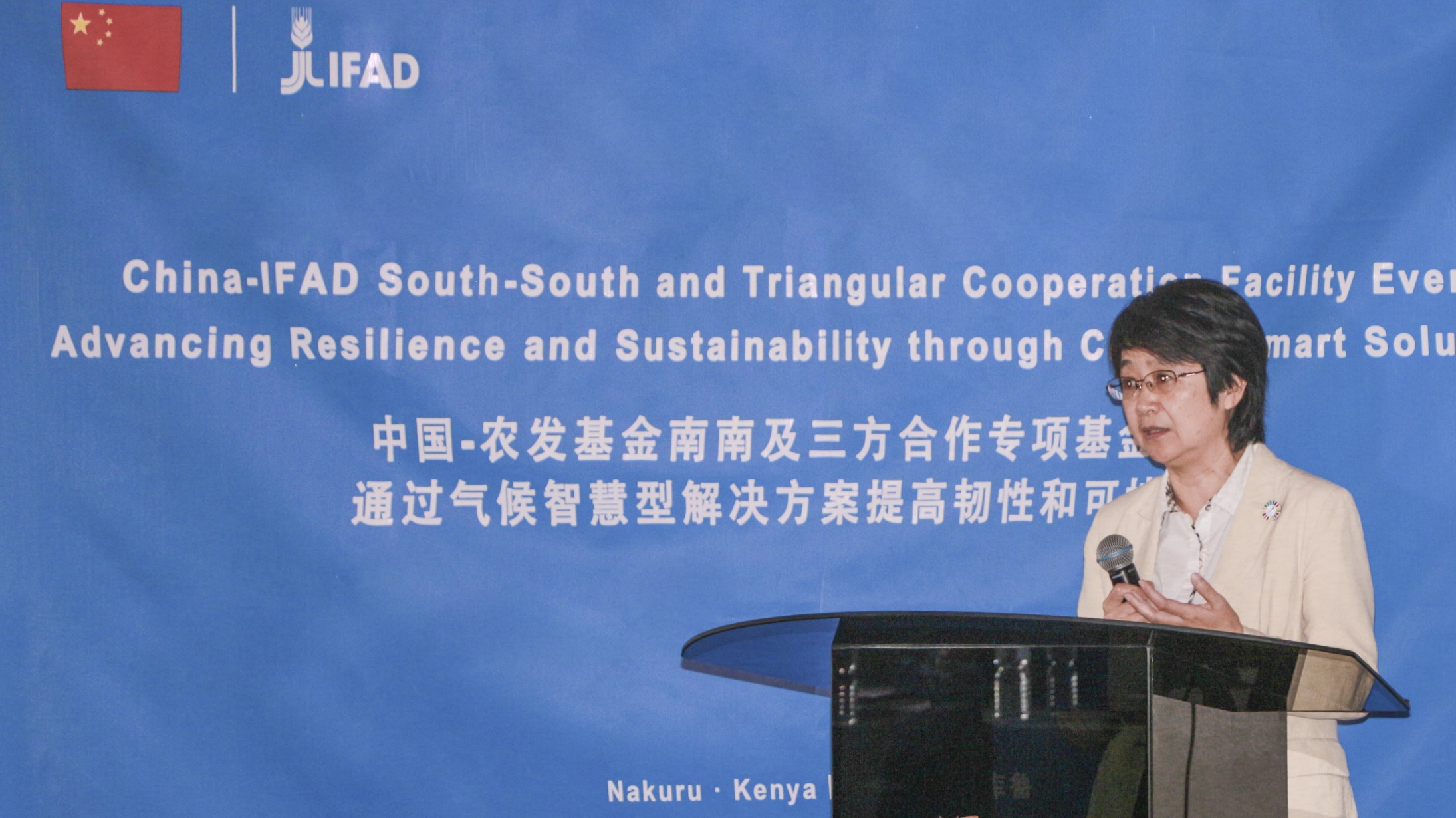May 29, 2024, Nakuru county, Kenya: The China-IFAD South-South and Triangular Cooperation Facility organized a hybrid knowledge exchange event at Egerton University, Kenya, to promote the uptake of climate-smart solutions for agricultural development. Smallholder farmers are increasingly affected by floods, drought, and increased pests and diseases due to climate change. To enhance the resilience of smallholder farmers, food security and sustainable development, the China-IFAD SSTC Facility has been funding projects in Asia, Latin America and the Caribbean and Africa to pilot innovative solutions for climate-smart agriculture. Through South-South and Triangular Cooperation, cost-effective and impactful solutions can be transferred and shared between countries of the Global South.
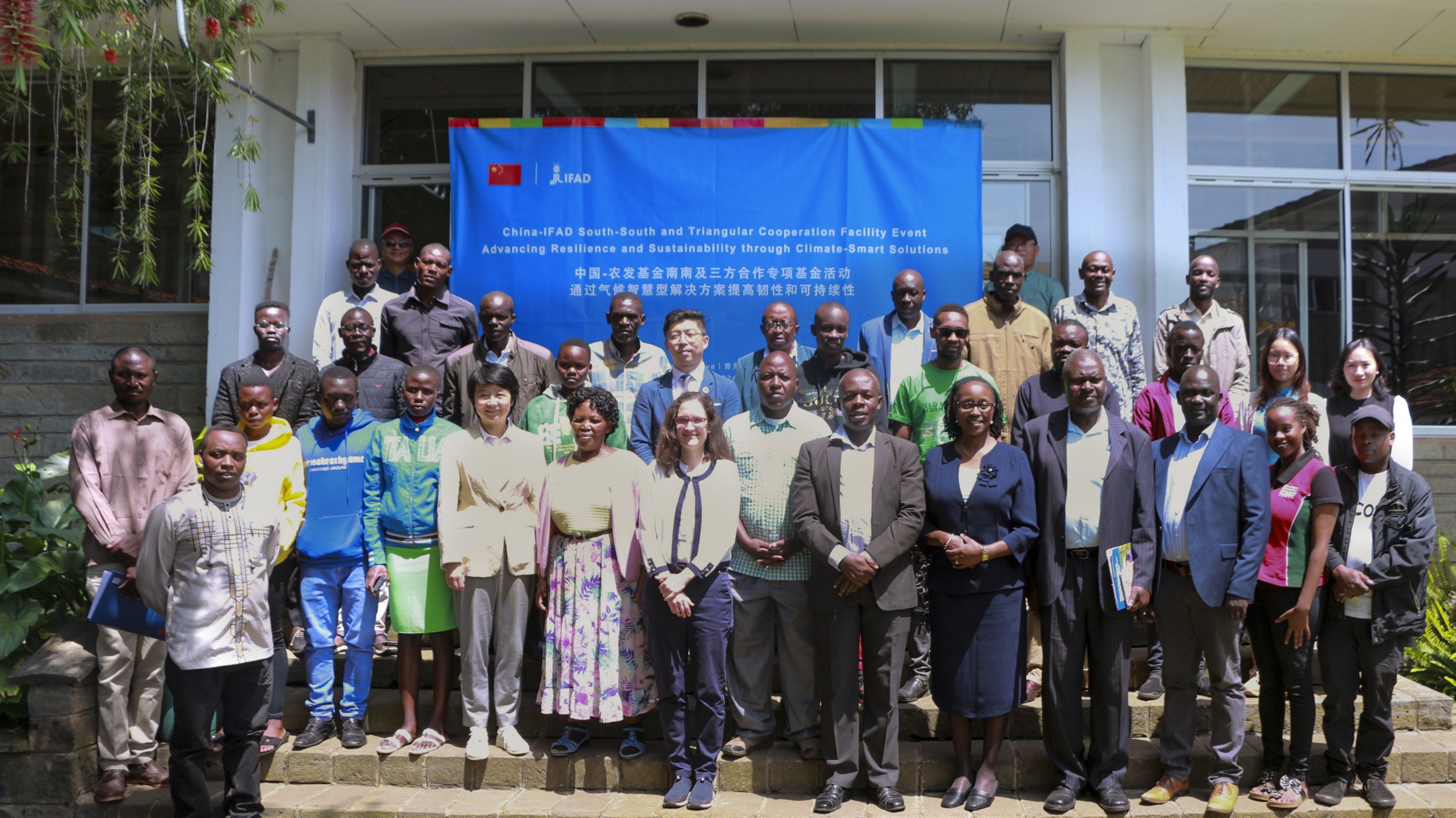
Group photo of participants at the event “Advancing Resilience and Sustainability through Climate-Smart Solutions” at Egerton University, Nakuru County, Kenya ©Wang Hao, Confucius Institute at Egerton University
Ms Sara Mbago-Bhunu, Regional Director, East and Southern Africa Division, IFAD, stressed that smallholder farmers and vulnerable rural populations are directly affected by climate change and IFAD has positioned SSTC as a crucial instrument within country programmes to assist Member States in addressing food security and rural poverty.
Mr Hongyong Mei, Deputy Representative, Counselor, Permanent Representation of the People’s Republic of China to the United Nations Agencies for Food and Agriculture in Rome, mentioned that China continues to increase climate financing to promote sustainable agricultural policies and technological innovation. He expressed his appreciation for IFAD’s response to climate change and vowed to deepen the cooperation with the China-IFAD SSTC Facility in the framework of the Global Development Initiative.
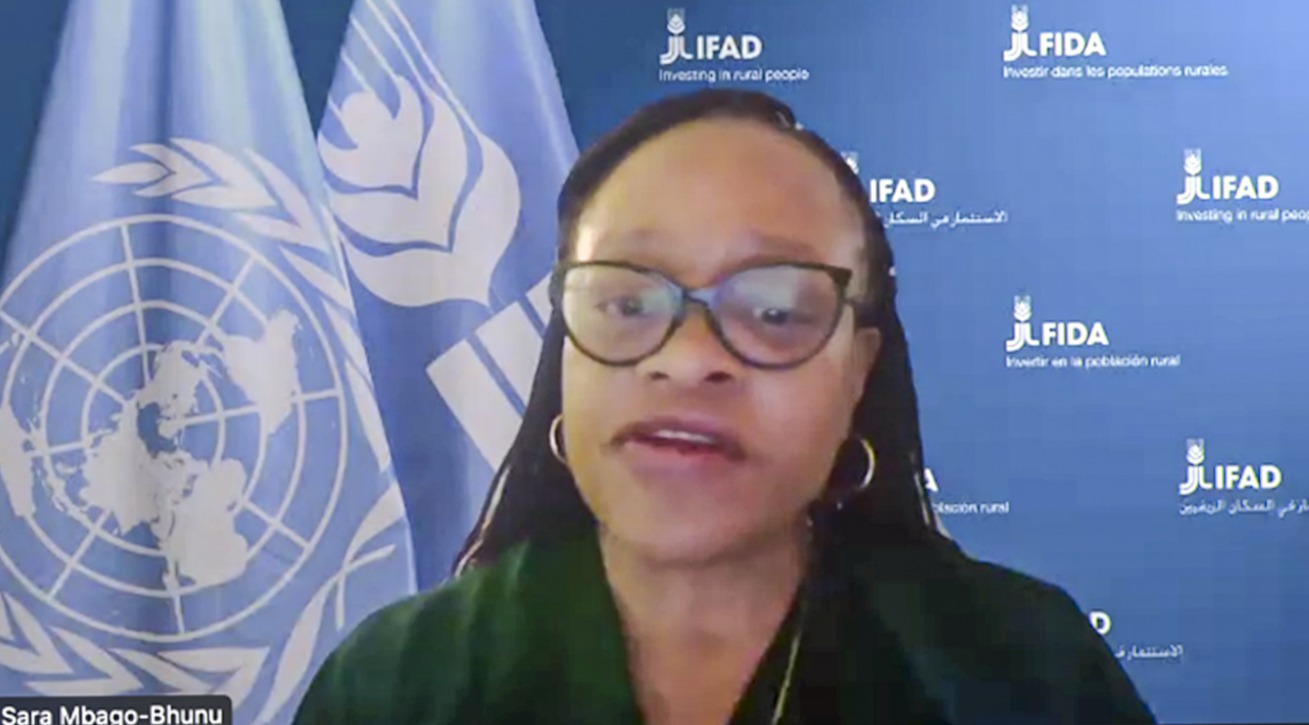
Ms Sara Mbago-Bhunu, Regional Director, East and Southern Africa Division, IFAD, delivering the opening remarks and highlighting the regional perspective on SSTC.
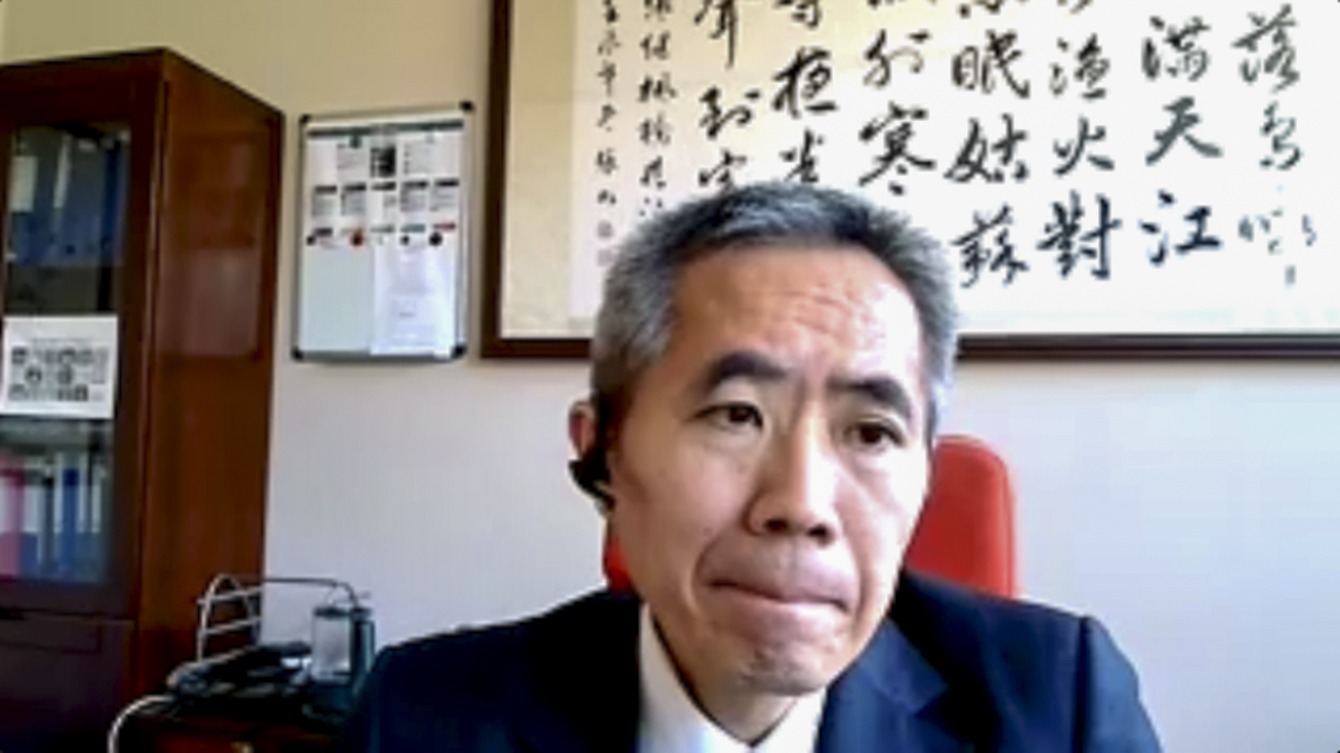
Mr Hongyong Mei, Deputy Representative, Counselor, Permanent Representation of the People’s Republic of China to the UN Agencies for Food and Agriculture in Rome, stressing China’s commitment to SSTC.
Professor Isaac O. Kibwage, Vice President of Egerton University in Kenya, and Professor Yan Zhu, Vice President of Nanjing Agricultural University in China, reaffirmed their commitment to foster sustainable agricultural development in Kenya and Africa under the framework of China-Africa South-South Cooperation, in order to help more smallholder farmers resist climate disasters, improve agricultural productivity, combat poverty and improve livelihoods.
Mr Xin Zhang, Partnership Officer, IFAD introduced the portfolio and achievements of the China-IFAD South-South and Triangular Cooperation Facility. Since its establishment in 2018, the Facility has approved and implemented 20 projects in 38 countries around the world, directly benefiting more than 44,000 smallholder farmers and indirectly benefiting more than 70,000 people. Ms Jaqueline Machangu-Motcho, Country programme Officer in Tanzania, IFAD, underlined how the Supporting and Strengthening Community Resilience in Tanzania (SSUCORETA) project funded by the Facility has helped farmers to increase production and income and become more resilient through the strengthening of value-chains of climate-resilient crops.
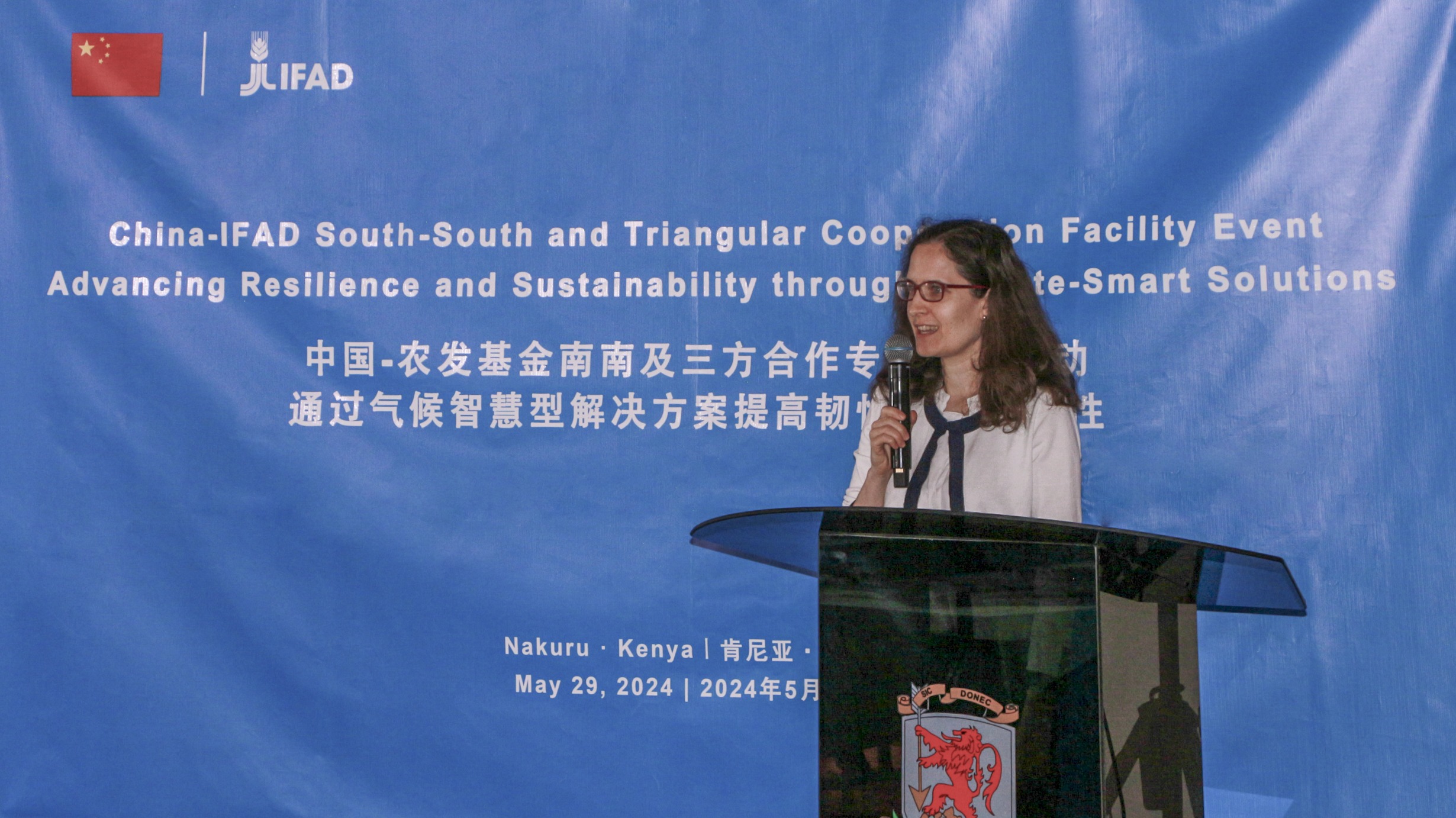
Dr Melina Breitegger, SSTC Partnership Analyst, IFAD, welcoming the audience in Kenya and online and introducing the keynote speakers ©Wang Hao, Confucius Institute at Egerton University
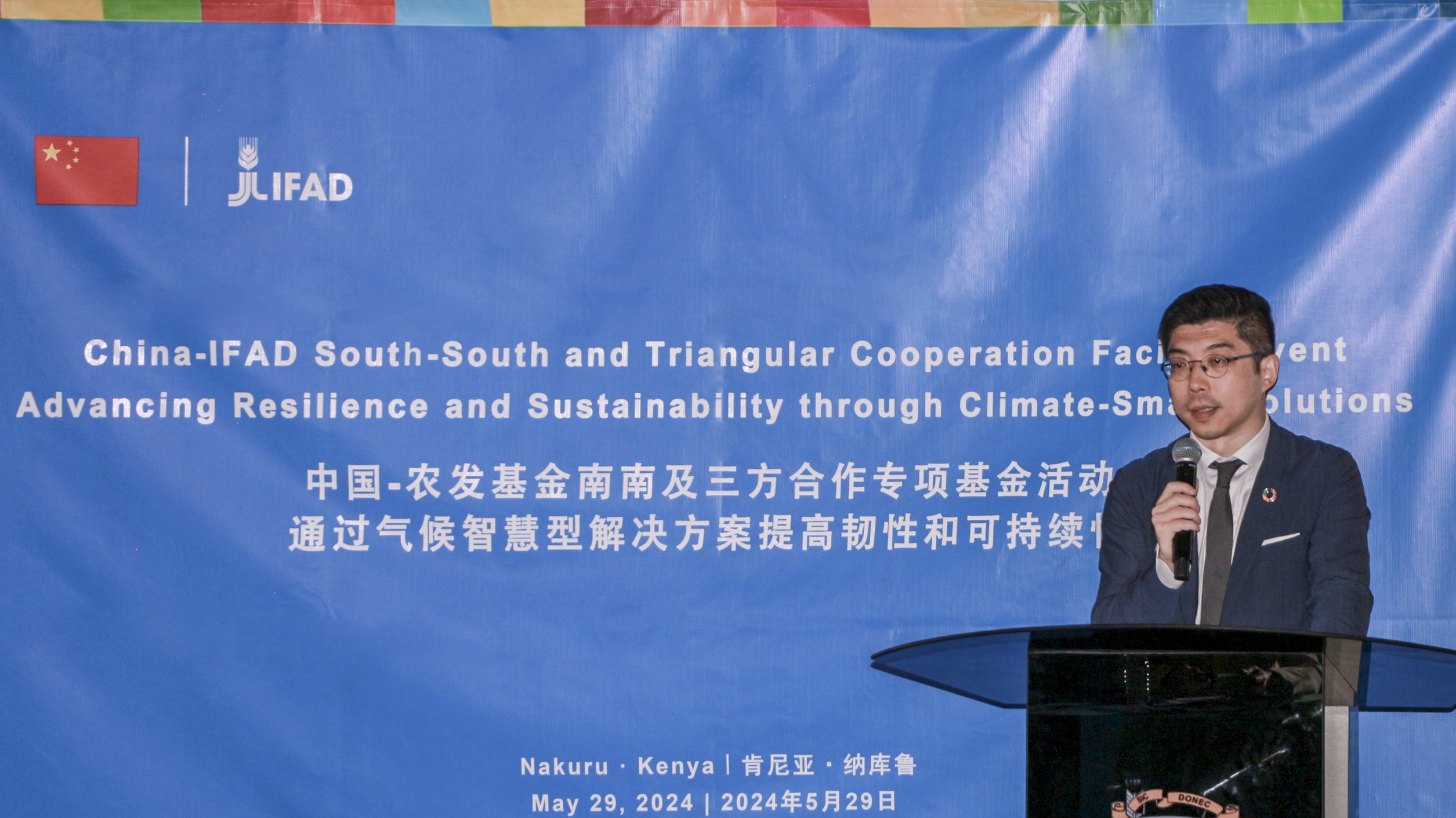
Mr Xin Zhang, SSTC Partnership Officer, IFAD, introduces the achievements and characteristics of the China-IFAD SSTC Facility ©Wang Hao, Confucius Institute at Egerton University
Among the climate-smart solutions presented during the seminar were vegetable grafting techniques for tomato farming in Kenya, the bamboo as a substitute for plastic initiative, the Mulberry-Dyke and Fish-Pond system for water conservation and micro-financing solutions to decrease the risk for agricultural financing.
Dr Mourice O. Omondi, Horticultural Crops Officer at Nakuru County presented a project which utilizes tomato grafting techniques and LED grow lights powered by solar energy to enhance the resilience of crops, improve value chains and foster youth employment.
Mr Jayaraman Durai, Director of Global Programmes, International Bamboo and Rattan Organization, introduced a new Facility-funded project in Argentina, Bolivia, and Brazil which promotes bamboo as a substitute for plastic to enhance livelihoods and climate resilience. By replacing plastics with bamboo, the initiative not only curbs environmental contamination but also promotes the use of a renewable resource that can be harvested repeatedly, thereby enhancing ecological sustainability, and helping communities adapt to climate change.
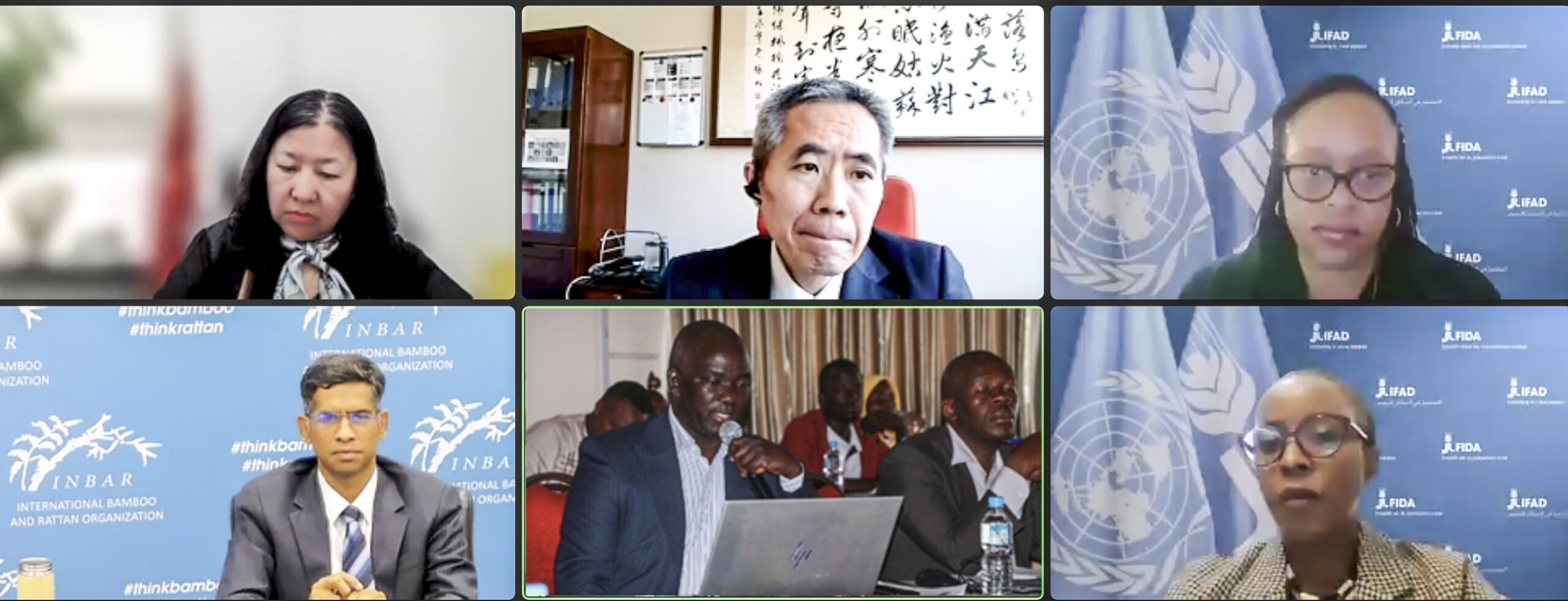
Seminar keynote speakers, from left to right, Professor Fengying Nie, CAAS; Mr Hongyong Mei, China Mission; Ms Sara Mbago-Bhunu, IFAD; Mr Jayaraman Durai, INBAR; Mr Lincoln Opio, Cordaid Kenya and Mr Mourice O. Omondi, Nakuru County Government; Ms Jaqueline Machangu-Motcho, IFAD; ©Wang Hao, Confucius Institute at Egerton University
Professor Fengying Nie, Former Deputy Director General of the Agriculture Information Institute, Chinese Academy of Agricultural Sciences (CAAS), China, shared the Zhejiang Huzhou Mulberry-Dyke and Fish-Pond System with has been successfully replicated in Viet Nam. This model represents a sustainable low-carbon, integrated eco-agricultural system designed to thrive in changing climates. It incorporates traditional environmentally friendly irrigation and drainage techniques to support the simultaneous production of mulberry trees, fish, and silk.
Mr Lincoln Opio, Agrifood System Strengthening Programme, Manager and Interim Country Manager, Cordaid, Kenya presented the results of the Strengthening Agricultural Resilience through Learning and Innovation (STARLIT) project which supported local microfinance institutions in developing tailored agri-financial products, including agricultural equipment loan products suitable for farmers’ needs.
In the closing session, Ms Wei Wang, Chief Partnership Officer, South-South and Triangular Cooperation and Global Engagement, Special Advisor to the President, IFAD, reiterated the importance of South-South and Triangular Cooperation as an effective tool to promote peer exchange and address long-term climate issues: “These solutions, originated from developing countries, are also cost efficient and easily adaptable to new contexts. We have heard today that, these solutions are effective means to address climate fragility, food insecurity and rural poverty.”
